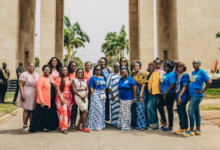Let us talk Pension – Important matter but left untold
When I was growing up in my Tontro village in the Eastern Region, there were a number of vehicles that plied the route from Tafo and Koforidua to the village. Most of these vehicles had very fascinating and exciting inscriptions on them.
There was one particular inscription that has been indelible on my mind till now, perhaps chiefly due to the way it frequented the village and how we the children in the village related to the driver.
The inscription was simply, “FUTURE IS UNKNOWN”. It was then fun when the driver started to toot his horn and we will all run to the roadside in excitement to see him and his Bedford “wooden bus”, but as I continued to grow, I learnt some lessons from the famous inscription.
I got back to Tontro after my long absence from the village I loved and anytime I saw some people who I knew worked hard on the farms to generate great worth for themselves and now see how they live miserable lives then my memory jogs to the inscription on the old Bedford “wooden bus.”
There is a profound saying that “The past cannot be changed. The future is yet within your power. Happiness is not something you postpone for the future; it is something you design for the present as tomorrow belongs to those who prepare for it today.”
Indeed, future belongs to people who prepare towards it today, because tomorrow is unknown as it also forms part of the future. The need for a pragmatic preparation towards one’s future has therefore become more paramount than ever especially in this part of the world.
We live in a society where the social and economic challenges abound even when there is a job to do for a regular income. Obviously, there is going to be a time when one cannot work again. The time when parents rely solely on their children for survival during old and inactive age is giving way to a period that is characterised with what I call “sole survival system.” This is a situation where parents have to fend for themselves.
It is not that children are becoming wicked or uncaring. No, that is not the case, it is rather a case that the children do not simply have enough for the “crumbs to fall for the parents.” This situation, honestly does not apply to everyone but frankly speaking it does to most people in Ghana today.
Many old people try to keep their souls young but it still become quivering for obvious reasons. Rightly so, nature cannot be cheated as the saying goes. If there are no preparations towards old age and retirement for that matter, old age becomes like a nuisance than the blessings God wants old age to be. That is why it is said that “if you fail to prepare; you would then rather prepare to fail.”
What has been the best strategy to avoid the stress, poverty, loneliness, protracted illness, boredom and sadness in old age around the globe and Ghana in particular is adequate preparation.
When you get old, you would not be able to work as before and circumstances are such that you would be compelled to retire from active work, even if you are self-employed. All over the world preparation towards comfort and enjoyable old age and retirement for that matter, has been the process of pensions. Effective and secured pensions are key solutions to retirement challenges.
Pension is defined as a “regular payment made by the state to people of or above the official retirement age, in some cases widows and disabled people are considered in pension plans.
In Ghana for instance, pension is considered as a “type of retirement plan that provides monthly income in retirement.” It is a sure way of getting relieve from economic hardship after retirement when one is not working for a regular income.
With a pension plan, something else is added to your contribution and invested in a very secured, viable and effective manner. Then the money will be paid to you usually as a monthly pay cheque in retirement, that is after you have reached a specific retirement age.
Unfortunately, in Ghana, pension was known and practiced only within the formal sector, which comprises only 15 percent of the entire working population. This means about 85 percent of the working class in Ghana have not being enjoying any form of pension after retirement over the years.
In recognition of the need for addressing such a challenge, which will also ensure a universal pension scheme for all employees in the country, and to further address concerns of Ghanaian workers, the Government in July 2004 initiated a major reform of the Pension System in Ghana. The process started with the establishment of a Presidential Commission on Pensions under the chairmanship of Mr. T. A. Bediako.
The Bediako Commission was charged with the responsibility to examine existing pension arrangements and to make appropriate recommendations for a sustainable pension scheme(s) that would ensure retirement income security for the entire Ghanaian working population, with special reference to the public sector.
The main recommendation of the Commission was the creation of a new contributory Three-Tier Pension Scheme or System for Ghana, funded by direct contributions of employers and employees to, replace existing parallel pension schemes.
Statistics available have it that, only one percent out of the 85 percent within the informal sector is currently, on one form of pension scheme in Ghana. So, this new scheme is a good step which needs to be encouraged and continued. Thanks to the introduction of the 3rd Tier Pension Scheme introduced into the country some ten years ago.
The three-tier (3rd Tier) pension scheme is a voluntary pension scheme for workers and self-employed workers in the informal sector and it is privately managed by a Corporate Trustee. Contribution is up to 16.5% (35% of declared income) of one’s basic salary.
Pension schemes until then had been operated in the country with sharp focus of workers in the formal sector in mind. This obviously was a huge limitation, because the then scheme failed to consider the plight of the majority of workers in the informal sector, who constitute the bulk (about 85%) of the working population in Ghana.
One can starts today to contribute minimal sums per month and reap maximum figures at the end of working life. There are thirty pension service providers called “Corporate Trustees” across the country that one can contact and start something today. Before you realise you will have all time regular income after retirement or when incapacitated. Then you could say the future is known.
So therefore, today no one has an excuse to be poor after retirement, irrespective of where one works, either in the formal or informal sector. Appropriately we could say one’s retirement happiness is in his or her own hands, better still, in his or her own pocket.
pension gained in the future would help you to at least maintain a middle-class standard of living, and retirement savings. It would also provide such important supplemental income for unforeseen expenses.
This could be done as an individual or as a group depending largely the type of work or where you work. Pension plans are the most economical and efficient way to fund retirement.
You may start yours today if you are not on one yet.
By Nana Sifa Twum






